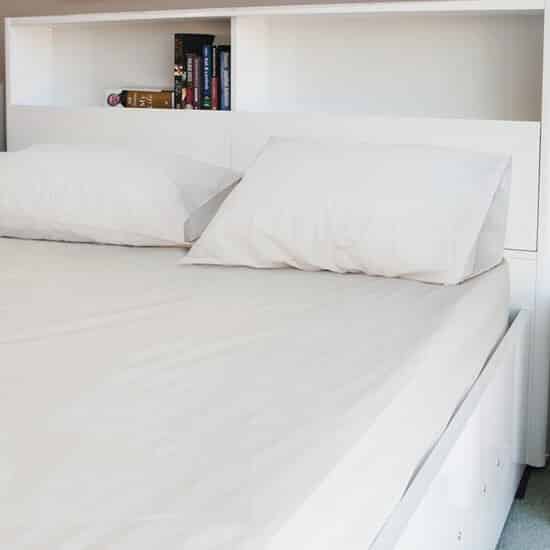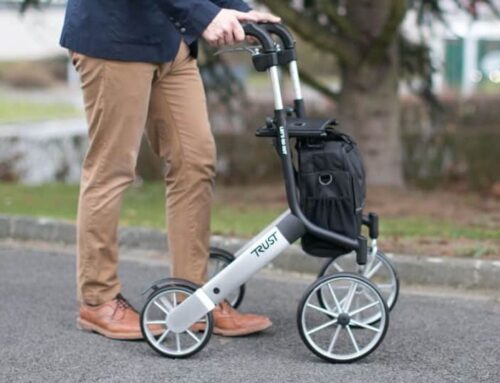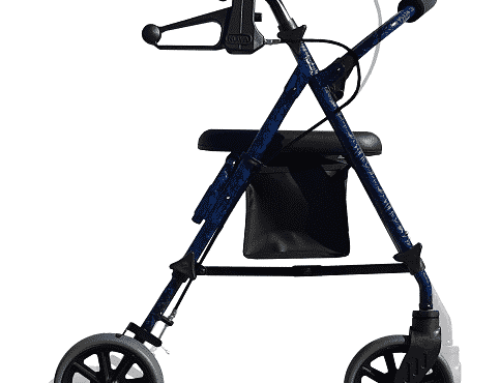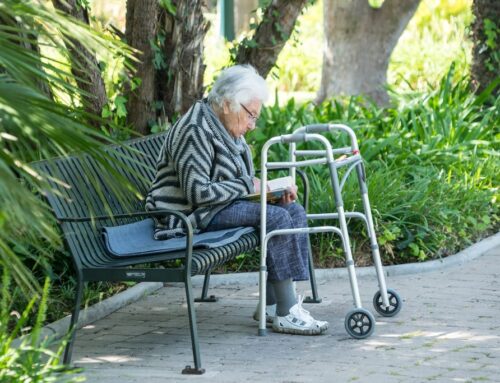A pressure care mattress is a specialised support surface designed to prevent and manage pressure injuries (also known as pressure ulcers) by redistributing body weight and reducing sustained pressure on vulnerable skin areas. How to ensure your loved ones enjoy every step with confidence.
Why Pressure Care Matters for Your Loved Ones
When a person spends long periods lying or sitting in one position without adequate support, they are at risk of developing pressure sores. A pressure injury occurs when skin and underlying tissue are damaged due to sustained pressure (or pressure combined with shear) — often over bony prominences such as hips, heels or elbows.
The consequences are serious:
- Reduced comfort and quality of life.
- Increased risk of infection and longer recovery.
- For caregivers: worry about making the wrong choice and frustration managing it all.
High-quality pressure care mattresses give you both peace of mind and tangible protection. At Able Medilink we believe high-quality mobility solutions are more accessible than you think.
The Lowdown: What Are Pressure Care Mattresses?
Definition and Purpose
A pressure care mattress (sometimes called a pressure relief mattress or support surface) is built with materials and/or technology that help reduce high-stress areas on the body, improve circulation and protect skin integrity.
How They Work
- They redistribute body weight over a larger surface area to reduce load on key pressure points.
- They may use foam, air-cells, hybrid systems, or alternating pressure technology to achieve this effect.
- Their covers and surfaces are typically designed to minimise shear, moisture and friction — all of which contribute to skin breakdown.
Quick Comparison Table
| Type of Mattress | Technology | Best For |
| Static foam / reactive | Foam layers, shaped surfaces | Lower to medium risk, some mobility |
| Hybrid | Foam + air cells, may be powered | Medium–high risk, some immobility |
| Alternating / active air | Powered pump cycles air cells | High to very high risk, minimal mobility |
Who Needs a Pressure Care Mattress?
If your loved one fits any of the following, it’s worth considering:
- Has limited mobility or is bed-bound for extended periods.
- Has existing pressure injuries or is at high risk of developing them.
- Is recovering from major surgery and must stay in one position.
- Spends lengthy periods in a wheelchair or recliner without relief.
Because when pressure sores develop, they can escalate rapidly — and the right mattress can make all the difference.
Key Features to Look For (and Why They Matter)
- Weight distribution and immersion/envelopment – The mattress should allow the body to “sink” a little and conform, reducing peak pressure.
- Support surface category – Is it reactive or active? Reactive surfaces (static) are for lower risk; active (powered alternating) for higher risk.
- Cover and hygiene features – Waterproof, vapour-permeable covers help manage moisture and shear.
- Fit the user’s body size, weight and mobility – Some mattresses are rated for bariatric use; others may be too shallow or not suitable.
- Comfort + compatibility with bed frame – A mattress may need to fit a profiling bed or have a side wall reinforced for sitting transfers.
When a Pressure Care Mattress Becomes a Game-Changer
Imagine your parent recovering from surgery, spending long hours lying down. Without the right surface they risk discomfort and skin damage. With a properly selected pressure care mattress:
- They feel supported, comfortable and safe.
- You as caregiver feel confident: not worried you chose the wrong product.
- The risk of pressure ulcers drops — restoring independence and dignity.
Choosing the Right Mattress for Your Situation
- Assess risk – Are we preventing or treating pressure injuries? Lower risk means static foam may suffice; higher risk means active surface.
- Consult experts – At Able Medilink we guide you through “what’s the best place to buy the best solution” and tailor based on individual condition.
- Try before you buy – If possible, trial the mattress in showroom or hire for short span to confirm suitability.
- Ensure funding & support – For users under the National Disability Insurance Scheme (NDIS) or other care programs, check eligibility of the mattress to suit their plan.
- Monitor usage and repositioning – Even the best mattress is part of the system; repositioning and skin checks remain vital.
Common Myths (and the Facts)
- Myth: “Any mattress will prevent pressure ulcers.” Fact: Only mattresses designed for pressure care redistribute load and reduce risk in high-vulnerability patients.
- Myth: “Only those already bed-bound need one.” Fact: Those who sit a long time (wheelchair) or have limited mobility may still benefit.
- Myth: “Higher price always means better for every user.” Fact: Matching risk level and therapy type is more important than cost alone.
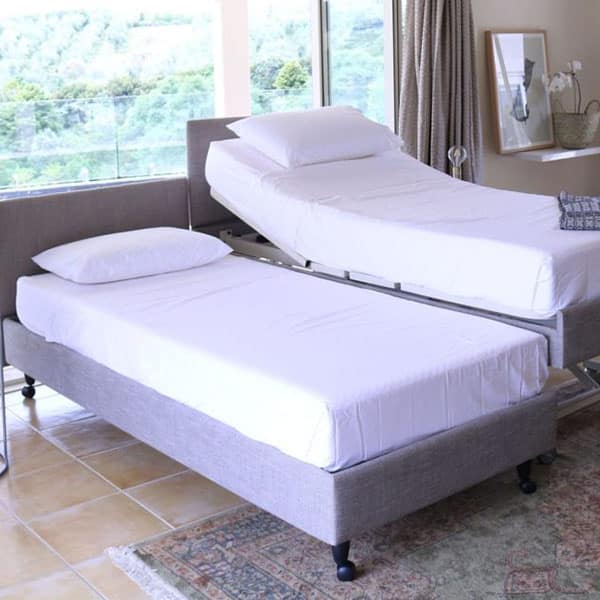
How Able Medilink Supports You (and Your Loved One)
- We carry a curated selection of pressure care mattresses to suit NDIS plans, home care and hospital-style needs.
- Our multilingual team (English, Russian, Chinese) give expert, compassionate advice so you don’t feel overwhelmed.
- Visit our showroom in Bentleigh, Melbourne (or order online Australia-wide).
- We offer high-quality, affordable solutions backed by after-sales support.
- We guide you from “seeking the best place to buy the best solution” to confident conversion.
3-Step Process to Finding the Right Pressure Care Mattress
| Step | What You Do | What We Provide |
| Step 1 | Assess needs: mobility, skin risk, bed/wheelchair usage | Expert consultation assessing risk and suitable therapy type |
| Step 2 | Select product category: foam/static, hybrid, alternating | Demo models, trial hire options, funding info |
| Step 3 | Purchase & install, monitor outcomes | Delivery/installation, support, follow-up advice |
Choosing a correct pressure care mattress can be the simple answer that protects skin and restores comfort for your loved one. At Able Medilink we understand the fears and frustrations caregivers face: overwhelmed by product ranges, anxious about making the wrong choice, worried their loved one won’t live comfortably. We believe you know they deserve the best. We are here to help you ensure high-quality mobility and rehabilitation solutions are both accessible and reliable.
Have questions or want to share your experience? Please leave a comment below or share this post if you found it helpful. If you’d like personalised advice on selecting the right pressure care mattress (or other mobility aids) for your loved one, feel free to contact us at our Bentleigh showroom or via our website — we’re ready when you are.


